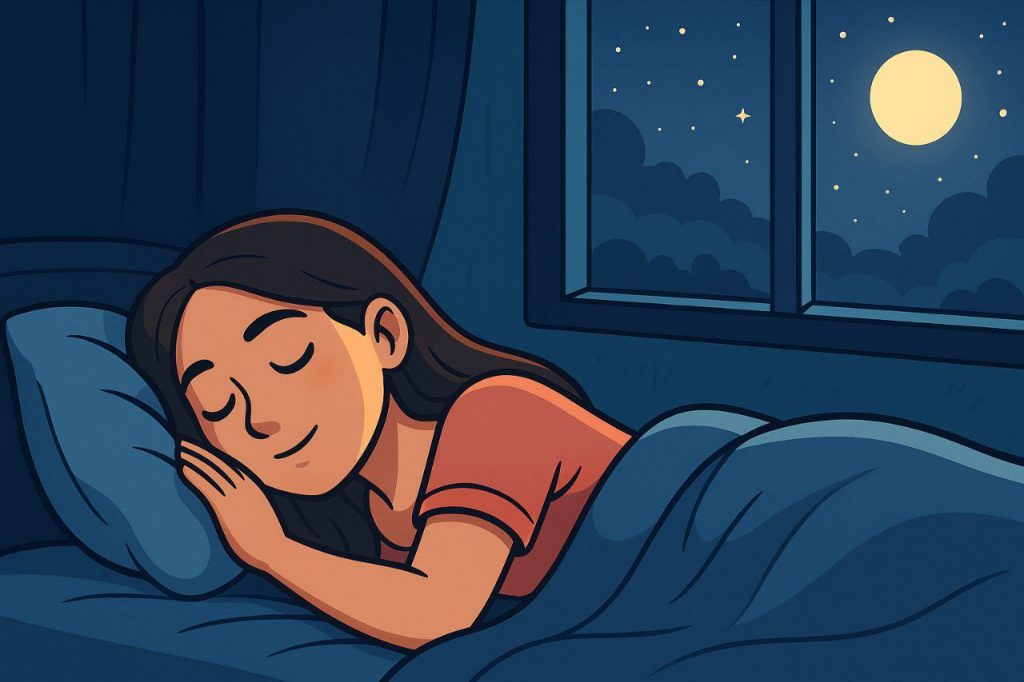Night has always fascinated humanity. When the Sun sets and darkness blankets the world, life transforms. For humans, night is not merely the absence of light — it is a crucial part of our biological rhythm, a time for rest, reflection, and renewal. Across cultures and history, the night has inspired myths, dreams, fears, and art. Yet behind the poetry of moonlight lies science: our bodies and minds depend deeply on the balance between day and night. Understanding what happens to humans when the world goes dark reveals much about our health, psychology, and evolution.
The Biological Importance of Night
Night triggers essential biological processes that help maintain human health. When darkness falls, the pineal gland in the brain releases melatonin, a hormone that regulates the circadian rhythm — our internal 24-hour clock that governs sleep, metabolism, and hormone production. This cycle synchronizes our bodies with Earth’s rotation, preparing us for rest. During deep sleep, the body repairs tissues, strengthens the immune system, and consolidates memories. Without proper sleep or exposure to natural darkness, the body’s rhythm becomes disrupted, leading to fatigue, hormonal imbalance, and long-term health risks such as cardiovascular disease or depression.
How Artificial Light Changed the Night
For most of human history, night was a time of stillness illuminated only by the moon and stars. But with the invention of electric lighting, humans began to extend their waking hours. While this revolutionized productivity and safety, it also introduced a new challenge: light pollution. Artificial light — especially blue light from screens and LEDs — interferes with melatonin production, tricking the brain into thinking it is still daytime. Experts like Dr. Matthew Walker, a neuroscientist and sleep researcher, warn that “the electric lightbulb may be one of humanity’s most underestimated health hazards.” Scientists now recommend minimizing screen exposure before bedtime and embracing natural darkness to restore our biological harmony.
The Night Mind – Dreams and the Subconscious
The night is also a gateway to the subconscious. During sleep, especially in the REM (Rapid Eye Movement) phase, the brain becomes highly active, creating dreams that reflect emotions, fears, and memories.
The Night Through History and Culture
Throughout history, the night has symbolized both mystery and transformation. Ancient civilizations worshiped lunar deities like Selene, Khonsu, and Chandra, seeing the Moon as a guardian of dreams. For poets, night is the realm of introspection and love; for philosophers, it represents the unknown. Yet, it also evokes fear — the absence of light made night synonymous with danger in early human societies. In modern times, urban nightlife has redefined darkness as a time of social connection, art, and music, while rural cultures still associate it with quiet reflection. Across all traditions, the night remains a mirror for the human soul.
The Science of Sleep and Health
Sleep research has shown that the quality of nighttime rest determines physical and mental well-being. Sleep deprivation weakens the immune system, impairs judgment, and accelerates aging. Conversely, consistent deep sleep improves memory, mood, and cognitive function. The World Health Organization classifies irregular sleep patterns as a global health concern, emphasizing that night should be protected as a natural phase of restoration. Doctors advise maintaining a consistent bedtime, reducing caffeine and screen use, and creating a dark, quiet environment to support natural melatonin production.
Expert Perspectives on Night and Human Behavior
According to Dr. Russell Foster, a professor of circadian neuroscience at Oxford University, “Humans are not designed for 24-hour wakefulness. The night is not an obstacle — it is an essential biological necessity.” Meanwhile, psychologist Dr. Shelby Harris notes that sleep quality affects not just health but also emotional intelligence: “When we neglect the night, we lose empathy, focus, and creativity.” Their insights underscore how the human relationship with night is both physiological and psychological, connecting body, mind, and culture in profound ways.
The Future of the Night in a 24-Hour World
In the age of constant connectivity, the boundaries between day and night are blurring. Cities that never sleep glow with artificial light visible from space, while technology keeps people awake long past sunset. Yet, scientists and environmentalists are working to reclaim the night — through dark-sky preserves, healthier lighting systems, and public education about circadian health. The future challenge is not to eliminate night but to rediscover its value — as a time for renewal, contemplation, and cosmic connection.
Interesting Facts
- The human brain cycles through four stages of sleep, with REM being the stage most associated with vivid dreams.
- Before artificial lighting, people often slept in two phases, waking for an hour in the middle of the night to reflect or talk.
- Blue light from phones suppresses melatonin more than any other color.
- Animals like owls and bats have evolved night vision and echolocation to thrive in darkness.
- Astronauts experience up to 16 sunrises and sunsets per day aboard the International Space Station, requiring strict sleep scheduling.
Glossary
- Circadian Rhythm – The internal biological clock that regulates sleep, hormones, and metabolism.
- Melatonin – A hormone produced by the pineal gland that signals the body it is time to sleep.
- REM Sleep – The stage of sleep associated with dreaming and high brain activity.
- Light Pollution – Excessive artificial light that disrupts natural darkness and circadian rhythms.
- Pineal Gland – A small gland in the brain that produces melatonin.
- Dark-Sky Preserve – An area protected from artificial light to preserve natural night visibility.
- Sleep Deprivation – The condition of not getting enough sleep, leading to physical and mental impairments.
- Neuroscience – The scientific study of the nervous system and brain.
- Echolocation – The ability of animals to locate objects by reflecting sound waves.
- Caffeine – A stimulant that can delay sleep when consumed late in the day.


